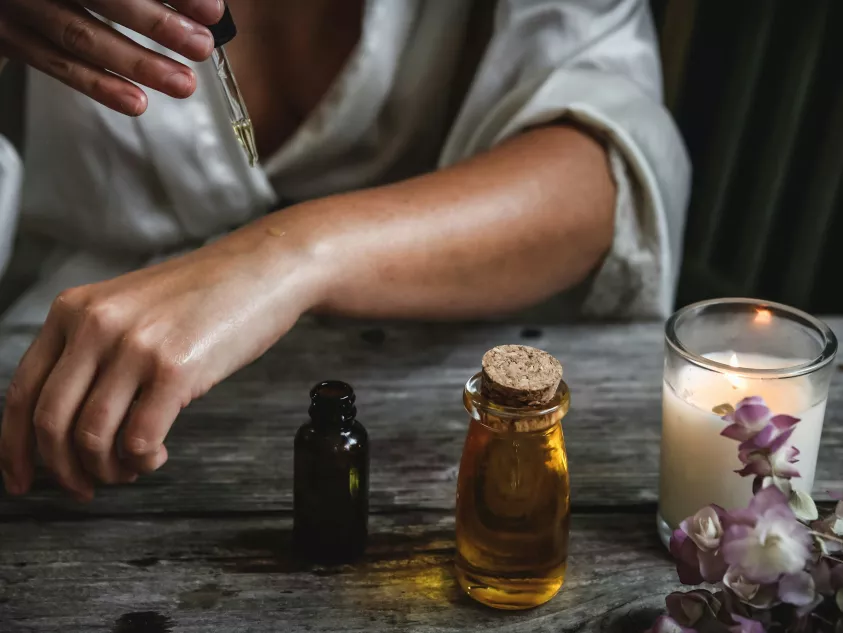Insights
Circular Beauty – Upcycled Ingredients in Personal Care Products
The personal care industry is embracing eco-friendly practices by introducing upcycling to its manufacturing process. Turning what would usually be disposed of into valuable parts of new products, upcycling tackles environmental issues and creates economic benefits by transforming waste into worth.

Author- Anjani Menon, Spend Pool Specialization
Personal Homecare Specialities
The personal care industry is embracing eco-friendly practices by introducing upcycling to its manufacturing process. Turning what would usually be disposed of into valuable parts of new products, upcycling tackles environmental issues and creates economic benefits by transforming waste into worth.
Companies including P&G, Colgate-Palmolive, and Tata Consumer Products are leading the way in sustainability. They’re innovating beyond just recycling packaging materials; they’re incorporating recycled materials into their actual products. This commitment illustrates a significant shift towards sustainable production and sets a new, higher standard for responsible product creation and disposal.
These actions reflect the industry’s drive to meet consumer demand for environmentally friendly products. Upcycling, by blending modern technology with a commitment to the environment, is preparing us for a future where products are designed to both protect the planet and satisfy consumer needs. For big companies in the personal care world, making long-term eco-friendly plans with new ideas is key to success.
Why Should Companies Upcycle?
Several factors motivate companies to introduce upcycling into their process. Consumer demand for environmentally friendly products is increasing, and regulatory environments favor sustainable practices. Economically, upcycling can reduce costs and generate new revenue opportunities by utilizing resources that were previously underused.
Technology and Upcycling
Technological progress is an important factor in the upcycling process. Advanced techniques in chemistry and biotechnology enable companies to extract valuable substances from waste materials. These substances, such as antioxidants and essential oils, add to the function and appeal of personal care products, from moisturizers to shampoos.
Examples of Successful Upcycling
As previously mentioned, leaders in the marketplace turning waste into resourceful products is a strategic move that’s setting new industry benchmarks. Lush Cosmetics, for example, repurposes old plastic for their packaging, and UpCircle Beauty upcycles used coffee grounds for skin care treatments. These actions cater to a consumer base increasingly concerned with the environment.
Other companies are also discovering the potential of what was once considered waste. Keracol and Marks & Spencer have transformed grape by-products into hair care, while Unilever has utilized tomato scraps for cosmetic formulas. The Body Shop incorporates misshapen fruits into their products, and Lush uses aquafaba, the viscous water in which chickpeas have been cooked, as a key component in their vegan shampoos. Polyphenols, a type of antioxidant abundant in discarded citrus peels, have gained particular favor in sustainable practices. Europe is leading the way in this trend, with the USA quickly catching up as small, independent beauty companies start to focus on upcycling.
Challenges in Implementing Upcycling
Upcycling, while innovative, comes with its challenges. Consistency in the quality of waste materials can be difficult to maintain, which can affect product formulation. Additionally, there is often consumer skepticism regarding the safety and effectiveness of products made from repurposed waste. Addressing these concerns requires clear and informative communication to help shift consumer perceptions positively.
How to Integrate Upcycling
Companies looking to introduce upcycling should follow a carefully considered strategy:
- Collaboration and Research: Work with ingredient developers, and academic and biotech entities to innovate and secure these upcycled ingredients.
- Identifying and Evaluating Sources: Select appropriate waste streams that align with production needs.
- Make Use of Technology: Invest in technologies that can transform waste into valuable ingredients.
- Product Development and Assurance: Conduct extensive testing to ensure product safety and effectiveness.
- Communication and Education: Engage consumers with transparent information about the benefits of upcycled products.
Soon, upcycling won’t just be an innovation in the personal care industry; it will be a leading example of sustainability. Companies that begin upcycling now are strategically positioning themselves to reap substantial benefits, whilst aligning with consumer trends and ever-evolving regulatory expectations.
Request a demo
Discover how our solutions can benefit you. Partner with us to unlock potential and drive success. Let's work together to achieve outstanding results.
Get in touch
We’re here to assist you! If you have any questions or need support, don’t hesitate to reach out. Contact us today and we’ll respond promptly to help with your needs.